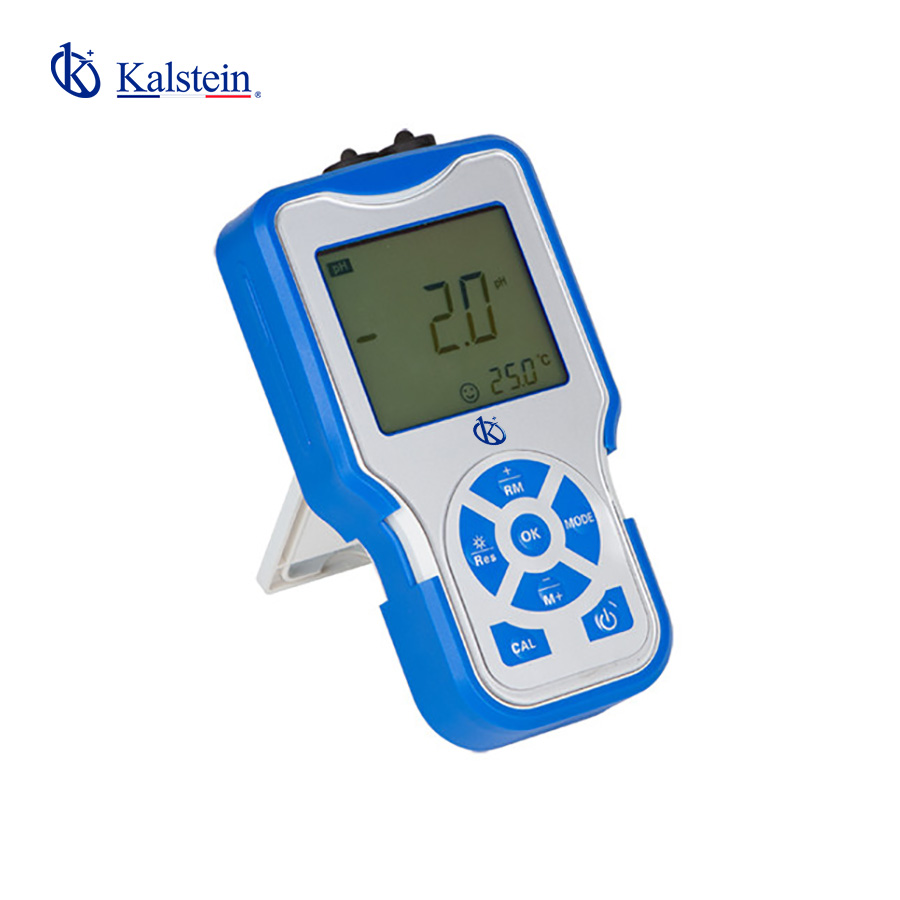Ion meters are designed to provide an intuitive interface that makes them easy to use for both experienced laboratory technicians and beginners. The ergonomics of the device are crucial, allowing for simple and comfortable handling during long hours of work in the lab.
The high-resolution digital display and touch controls are common features in modern models. These elements not only enhance usability but also ensure clear and precise reading of results. Additionally, many ion meters are equipped with advanced software that allows integration with laboratory data management systems, thus optimizing workflow and information management.
If you wish to explore the high-end product catalog we have for you at KALSTEIN, visit us at https://kalstein.eu/categorie-produit/laboratory-sector/ion-meter/?lang=en. We assure you that through our easy and feasible online purchasing channels, you will find the best prices in the market. We remind you that at KALSTEIN, we manufacture high-level laboratory equipment for sale. https://kalstein.eu/?lang=en
Accuracy and Reliability in Results
One of the most critical aspects of ion meters is their ability to provide accurate and reliable results. The precision in diagnostics largely depends on the accuracy of ionic measurements, which is vital in various clinical and research applications. Ion meters use ion-selective electrodes (ISE) that are extremely sensitive and specific to the ions being measured. These devices can detect very low concentrations of ions in complex samples, ensuring improved clinical results. Moreover, automatic calibration and temperature compensation are features that ensure the stability and reproducibility of measurements.
Clinical and Research Applications
Ion meters have a wide range of applications in both clinical and scientific research fields. In clinical practice, they are used to measure electrolytes in blood, urine, and other body fluids, which is crucial for diagnosing and managing various medical conditions such as electrolyte disorders, kidney diseases, and cardiovascular issues. In research, ion meters are essential for studies in cell physiology, biochemistry, and pharmacology. Their ability to provide precise data on ionic concentrations in different sample matrices makes them indispensable tools for scientists seeking to better understand biological mechanisms and develop new therapeutic treatments.
Comparison with Other Measurement Equipment
While there are various tools for measuring ionic concentrations, ion meters stand out for their specificity and ease of use. Compared to techniques like mass spectrometry or ion chromatography, ion meters offer a faster and more cost-effective solution for many routine applications. The simplicity of ion meters also makes them more accessible for smaller laboratories or those with fewer resources. While advanced spectroscopic and chromatographic techniques require expensive equipment and highly trained personnel, ion meters can be operated efficiently with minimal training, democratizing access to precise and reliable measurements.
Recent Innovations in Measurement Technology
The technology behind ion meters has advanced significantly in recent years. One of the most notable innovations is the integration of wireless technologies and cloud connectivity, allowing for remote monitoring and analysis of data. New models also incorporate artificial intelligence algorithms that can predict and correct potential errors in measurements, further enhancing accuracy and reliability. These innovations not only improve the quality of results but also optimize workflow in the laboratory, reducing the time and costs associated with sample processing.
Maintenance and Technical Support
Proper maintenance of ion meters is crucial to ensure their long-term performance. Most manufacturers offer preventive maintenance programs and technical support to help users keep their devices in optimal condition. Technical support also includes initial training and ongoing advice, which is essential to ensure that users can maximize the potential of their equipment. Additionally, many suppliers offer warranties and service contracts that cover repairs and replacements, providing peace of mind and protection for the laboratory’s investment.
In conclusion, ion meters are essential tools in clinical and research laboratories, offering precision, reliability, and ease of use. From their ergonomic design to recent technological innovations, these devices have evolved to meet the growing demands of the fields of medicine and science. By providing improved clinical results and accuracy in diagnostics, ion meters play a crucial role in enhancing health and overall well-being.

